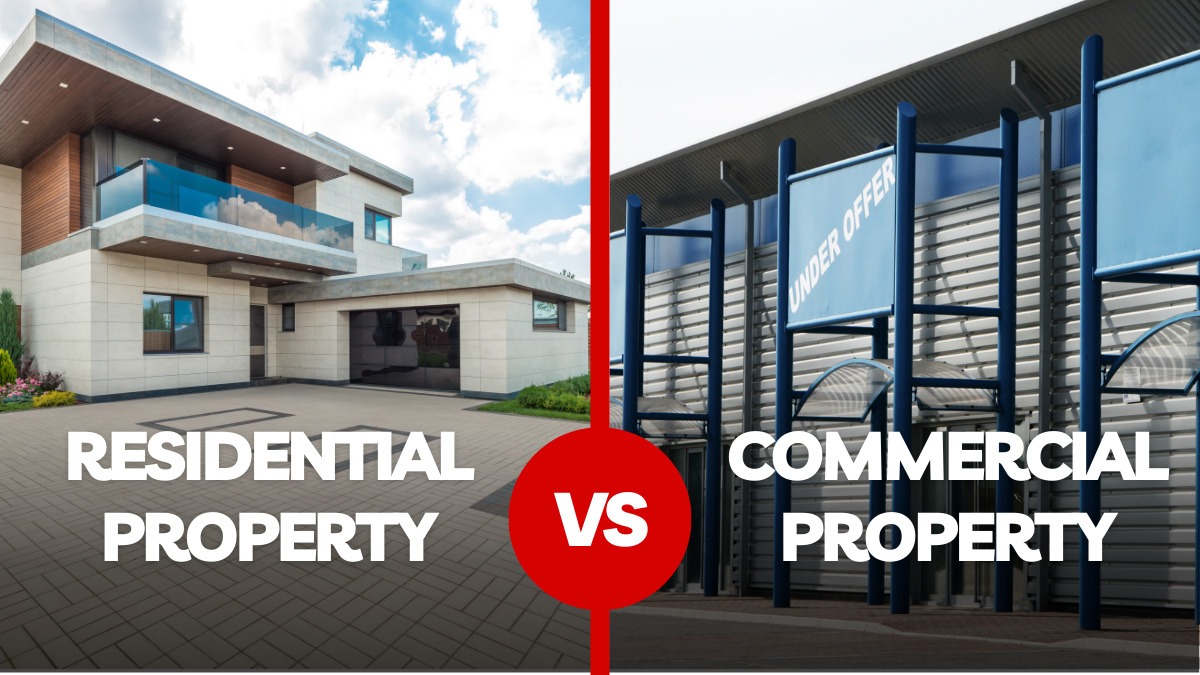Key Practical Differences Between Buying Commercial and Residential Properties
Thinking of investing in or developing a commercial property? If you’ve dealt with residential properties before and think the process is more or less the same, think again! There are many key differences when buying a commercial property that you should be aware of from the get-go. Below, we’ve outlined a few key practical differences that any commercial property buyer should know.

1. Due Diligence – Don’t Cut Corners!
For residential properties, due diligence is relatively straightforward: do you like the house and the neighbourhood, are you comfortable with the contract terms, and are you satisfied with the building or strata report?
Commercial properties, on the other hand, require more extensive due diligence. You need to understand existing leases and tenancies, assess environmental issues (like land contamination), and thoroughly review zoning and development restrictions, especially if you plan to rezone or redevelop the property.
2. Option Deeds – Not ready to commit?
Option deeds aren’t unusual in commercial property transactions. They allow parties to take the property off the market before exchanging the sale contract, giving developers time to conduct due diligence and providing vendors with additional incentive through an option fee. Think of them as a way to halt the competition from snatching up the property while keeping your commitment flexible. Just be mindful of the difference between a ‘call option deed’ and a ‘put and call option deed’!
3. Lease Review – Absolutely Critical
A thorough lease review is crucial for commercial properties. Lease documents often detail extensive landlord obligations, such as works responsibilities, and unusual tenant rights, such as a first right to purchase or early termination rights.
Engaging an experienced commercial property lawyer to review and negotiate these terms is crucial, particularly since the value of a commercial property is often directly tied to the rental income from tenants.
4. Conditions Precedent – The Essential Checkpoints
Commercial sale contracts frequently include conditions precedent (CPs) that must be satisfied before settlement can occur. These conditions can include Development Application (DA) approval, rectification of building issues, or obtaining necessary permits. If you want the benefit of CPs, make sure you properly consider and negotiate these before you exchange!
5. Adjustments – A Fine-Tuned Balancing Act
Pre-settlement adjustments for commercial properties are typically more complex. With tenants often contributing to rates and charges, all contributions need to be calculated and adjusted properly, making the adjustment process more detailed than in residential transactions.
6. Financing and Valuation – A Different Ballgame
Securing financing for residential property is generally more straightforward, with banks and lenders offering various mortgage products designed for home buyers.
Commercial property financing is more intricate. Lenders assess the property’s potential to generate income, the financial health of the business involved, and the economic viability of the property. Valuation includes not just the physical condition and location but also factors like the length and stability of existing leases, rental income, and future growth potential. You want to be using a broker/lender who is experienced in commercial property lending, to help you navigate these issues effectively.
7. Stamp Duty Considerations – Be Prepared
Buyers of commercial properties need to consider additional duty implications, such as those related to option deeds. In some Australian states like Victoria, property developers may have the option to pay other taxes instead of stamp duty.
8. GST – Does it Apply?
GST is more frequently payable to commercial properties. GST is usually payable unless the property is sold “as a going concern” (ie sold with existing tenants). Commercial contracts often include complex GST provisions that need careful review and it’s crucial to understand your GST obligations before you exchange, lest you receive an unexpected bill to pay that additional 10% at settlement!
Key Takeaway – Above All Else, Make Sure You…
If you’re wanting to purchase or sell a commercial property, its crucial that your advisors are intricately familiar with the specific issues that apply to commercial conveyancing, as distinct from residential. With professionals who know what they’re doing, they will be able to guide you through the above issues, rather than you needing to figure it out yourself! Jaide Law is a property law firm based in Sydney that specialises in commercial property law and commercial property conveyancing, ensuring that your property transactions are smooth, legally sound, and aligned with your goals. Reach out to us for expert assistance tailored to your unique property needs!
*Disclaimer – We know most of you get this, but just to be clear, the information above is general and doesn’t consider your unique situation. Please don’t rely on it as a substitute for professional advice. We strongly encourage you to seek appropriate guidance for your specific needs.


